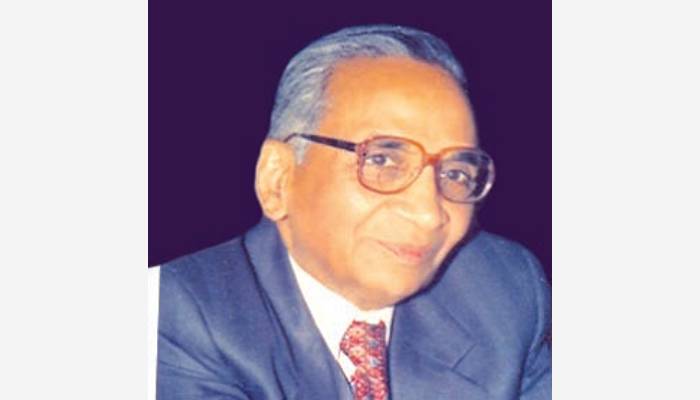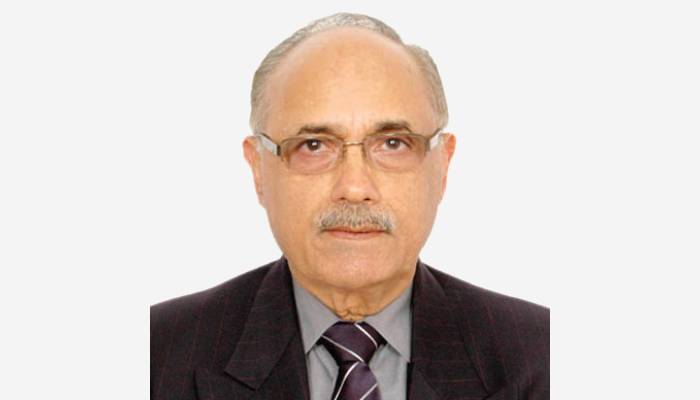
or

In the context of latest judgment by the Hon’ble Madras High Court in A. K. Balaji case whereby “fly-in and fly-out” practice of foreign lawyers, to advise their clients on issues of foreign law, international law and international arbitration has been allowed, it becomes pertinent to critically analyse the issue of foreign law firms in India in its correct perspective
Entry of foreign law firms has been a hot topic in the legal fraternity in India for more than a decade now. Some have been looking for their arrival in India with great sense of anticipation and others have raised a queer pitch to keep them out. The formal battle lines are drawn along the legal possibility of foreign law firm’s entry into India. Hon’ble Bombay High Court in the Lawyers Collective Case held that it is illegal for the foreign law firms to open liaison offices in India, but recently, the ruling by the Hon’ble Madras High Court in A. K Balaji has held it lawful for foreign lawyers to fly-in and fly-out to advise their clients on issues of foreign law, international law and international arbitration. This cross-talk between the foreign and Indian legal professionals across court rooms can be better understood, though, in the context of the core economic interest around which the relevant stakeholders are taking positions.
There is a standard disclaimer of foreign law firms’ about their disinterest in litigation work. They maintain that their focus in India will remain on legal services with an international dimension. Such services may be consumed by Indian entities investing abroad and foreign entities investing in India. Company formation, foreign investment compliance, lease and purchase of premises, shareholding structures, shareholding agreements, business to business contracts, business to consumer contracts, employment law compliance, employment contracts, protection of intellectual property rights, acquisition advisory and investment dispute avoidance and resolution are some of the legal services that fall in this basket.
An Indian high net worth entity investing abroad is likely to lean on their advisors in India to source suppliers for overseas legal services. If a firm with multi-country presence has direct relationships with clients in India, the pre-eminent position of trust of an Indian jurisdiction expert and the client’s lack of prior experience with a foreign legal service provider will simply disappear and with this the opportunity of the Indian legal professional to have a finger in his clients’ international transactions will also vanish. Thus, for an Indian legal services provider, it is a business threat to let the foreign law firm have a physical presence in India and naturally, this is the business opportunity that foreign law firms are after. Perhaps, therefore, the pitch became shriller from the Indian professional leadership when the physical presence of the law firms in India became a real possibility. The physical presence of foreign law firms in India also threatens the opportunity for capacity development of the local legal services provider (to offer legal services with an international dimension), who is more likely than not a new player in the International arena. However, what the Indian legal professionals need to understand is that the opportunity available to them is not too great. With increased intensity of communications, and increased mobility of the work force, Indian entities are progressively likely to have direct knowledge of the foreign players. Also, foreign players are in any case better positioned to advertise themselves and to aggressively pitch themselves as better service providers. For instance, it has been reliably learnt that ONGC Videsh Limited, has a panel of about a dozen law firms for advising on its investments abroad, out of which only three are Indian firms. The business hardly goes to these firms due to a perception that Indian firms on the panel have a steep learning curve to climb, which makes their turnaround time higher. Thus, more than the protection to the market, what the Indian firms need is support in high quality capacity building and on-thejob professional training. This can best be had through collaborative arrangements secured through a stepped opening up of the Indian legal services market.
Legal services of the nature identified above will be needed by a foreign investor in India as well. Today, this need is met by Indian professionals, who take this opportunity to continue their relationship with these clients for future business in India. Again, with a physical presence of the foreign firms with all their branding might and brand recognition imported from overseas, Indian firms will not stand a chance of winning over these businesses. After all, how many of the Indian firms have made it to the Legal 500 of the world?
Predominantly, Indian legal profession still remains an individual-centered practice. The funding model is that of a pure profession. As against alternate business structures in the UK, where millions of GBP can be poured into developing a law practice, and similar amounts can be borrowed on commercial basis, in India, the best professional loan would be in the range of Rs. 10- 15 lacs. Can the government legitimately think of opening up the market with such a structural disbalance that will have only one result on the indigenous professionals?

The subject of entry of foreign law firms in India has become too politicized. No one seems to ask what a foreign law firm is. Indian Advocates Act or the Bar Council Regulations do not carry any provision relating to formation, conduct and regulation of a foreign law firm in India. The subject in some form has been addressed by Bombay and Chennai High Courts. Within their jurisdiction one has to proceed as per the law enunciated by them. Information Technology has made such advances that physical location of an entity does not determine its reach for services. The issue may, that way, be considered as non est. Universally, legal services have to be performed and regulated in accordance with the law and regulations in the country in which the services are performed. Let there be an objective discussion on the subject without any lobbying pressure of vested interests.
To objectively analyse the situation, one needs hard data on: (1) the balance of trade in the legal services, (2) the extent and impact of regulatory barriers on the Indian legal professionals abroad, (3) the business opportunity that the profession would lose on account of “non-regulatory” barriers that an Indian legal professional faces in entering the profession abroad, (4) the potential of export of legal services out of India, (5) the skill gap in the Indian professionals especially in facing competition from well nurtured foreign firms, and (6) the structural disadvantage that the Indian professionals will face in the onslaught of foreign law firms in India. Comparing the balance of trade from the Indian standpoint, I notice that only a couple of Indian firms have a meaningful presence in London (to the best of my knowledge) and a few counted firms of repute had Indians as any key partner. Whereas, going by the list of respondents in A. K. Balaji, scores of overseas firms have a definite practice in India. Does this dis-balance give any cue to the Indian policy makers? These and many more questions would have been better answered in national interest has the government given pro-active thought to some of the very mundane considerations in foreign trade policy making instead of relegating this debate to the issues framed around individual public interest litigations. However, it is certain that the market is big enough to keep the foreign law firms interested in prying it open and by “structuring” the manner in which the services are delivered to the Indian legal services market.

‘The question of this question does not arise as the law on the point is very clear. The Advocates Act 1961, the rules thereunder and the rulings of the Hon’ble Supreme Court and High courts on the point are very clear that only a citizen of India or duly qualified lawyers, from a country where Indian Advocates are reciprocally allowed to practice, can practice law in India. And the position of law as to “fly in fly out practice of law” by foreigners is akin to practicing law on casual basis and the permission to do so by Hon’ble Madras high court is the enunciation of law on the point as neither the Act nor the rules prohibit such casual practice by foreign law firms.’
“The entry of foreign law firms into India ought to be welcome but along a well calibrated path. Local sourcing and capacity building obligations which are measurable in terms of the quality of services sourced and training imparted should precede any entry”
The entry of foreign law firms into India ought to be welcome but along a well calibrated path. Local sourcing and capacity building obligations which is measurable in terms of the quality of services sourced and training imparted should precede any entry. An effective infrastructure to regulate entry and oversight of foreign law firms into the legal profession in India ought to be put in place. Scheme akin to the Registered Foreign Lawyers in the UK could be thought of for professionals practicing foreign law in or out of India as well. Government of India and the Bar Council of
India ought to put up adequate trade barrier monitoring infrastructure in place. For example, a cohort survey of professionals who have taken the State Bar Council’s permission for qualification transfer could be conducted. Further, the balance of trade in this sector ought to be measured and reported. Also, Government of India should come up with financial support schemes for export of legal services and for modernizing the legal profession. In essence, legal profession is an infrastructure activity and ought to be recognized as such. A wider engagement with key stakeholders is needed in a systematic and sustained manner, instead of debates around PILs. Issues need to be addressed upfront. All this can only happen in the back-drop of evidence based policy making. So, the government of India, Bar council of India and the State Bar Councils, Consumer organisations as well as trade bodies need to engage in some solid policy research.
Dr. Maurya Vijay Chandra is a practicing Advocate at the Supreme Court. Maurya holds a Masters from the London School of Economics and PhD from the University of London. He has also taught at University of London; NUJS (Kolkata); and UGC Academic Staff College (Ranchi).

Lex Witness Bureau

Lex Witness Bureau

For over 10 years, since its inception in 2009 as a monthly, Lex Witness has become India’s most credible platform for the legal luminaries to opine, comment and share their views. more...
Connect Us:


The Grand Masters - A Corporate Counsel Legal Best Practices Summit Series
www.grandmasters.in | 8 Years & Counting
The Real Estate & Construction Legal Summit
www.rcls.in | 8 Years & Counting
The Information Technology Legal Summit
www.itlegalsummit.com | 8 Years & Counting
The Banking & Finance Legal Summit
www.bfls.in | 8 Years & Counting
The Media, Advertising and Entertainment Legal Summit
www.maels.in | 8 Years & Counting
The Pharma Legal & Compliance Summit
www.plcs.co.in | 8 Years & Counting
We at Lex Witness strategically assist firms in reaching out to the relevant audience sets through various knowledge sharing initiatives. Here are some more info decks for you to know us better.
Copyright © 2020 Lex Witness - India's 1st Magazine on Legal & Corporate Affairs Rights of Admission Reserved